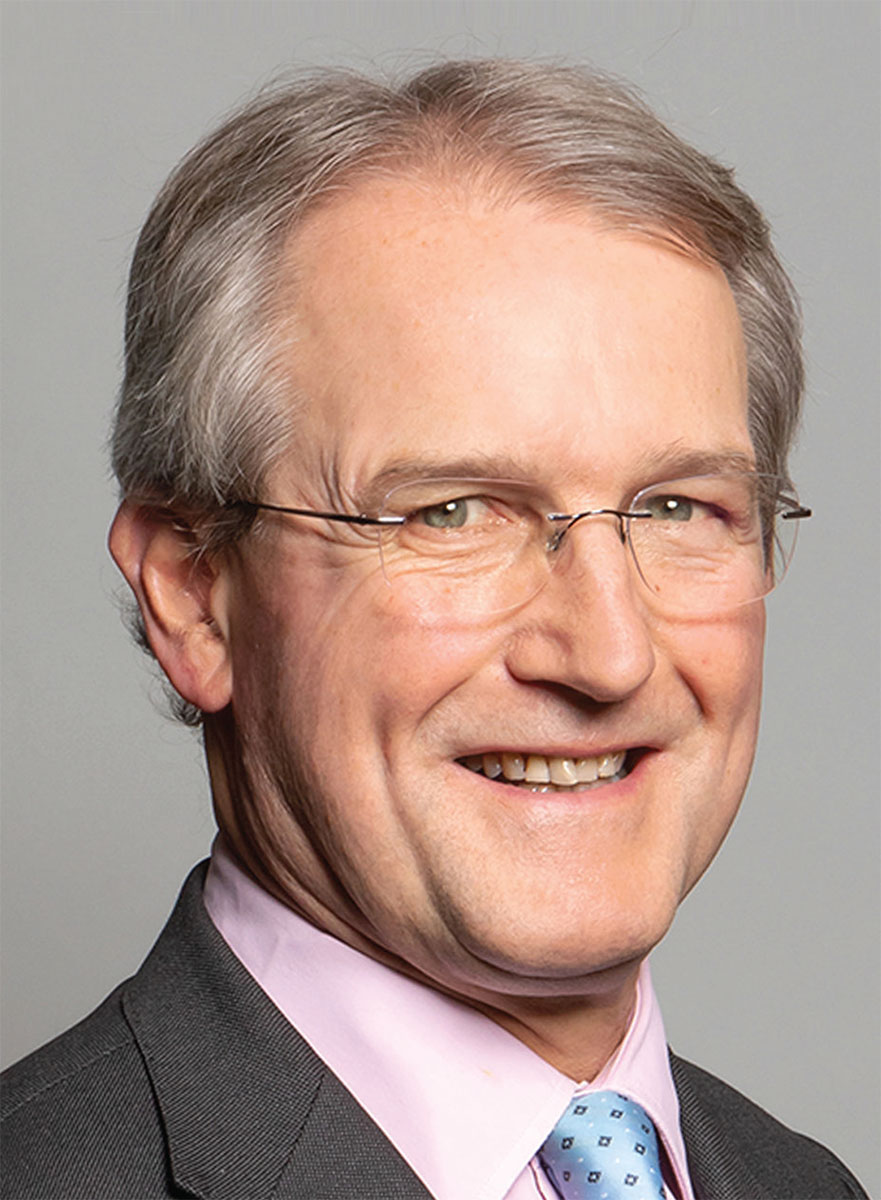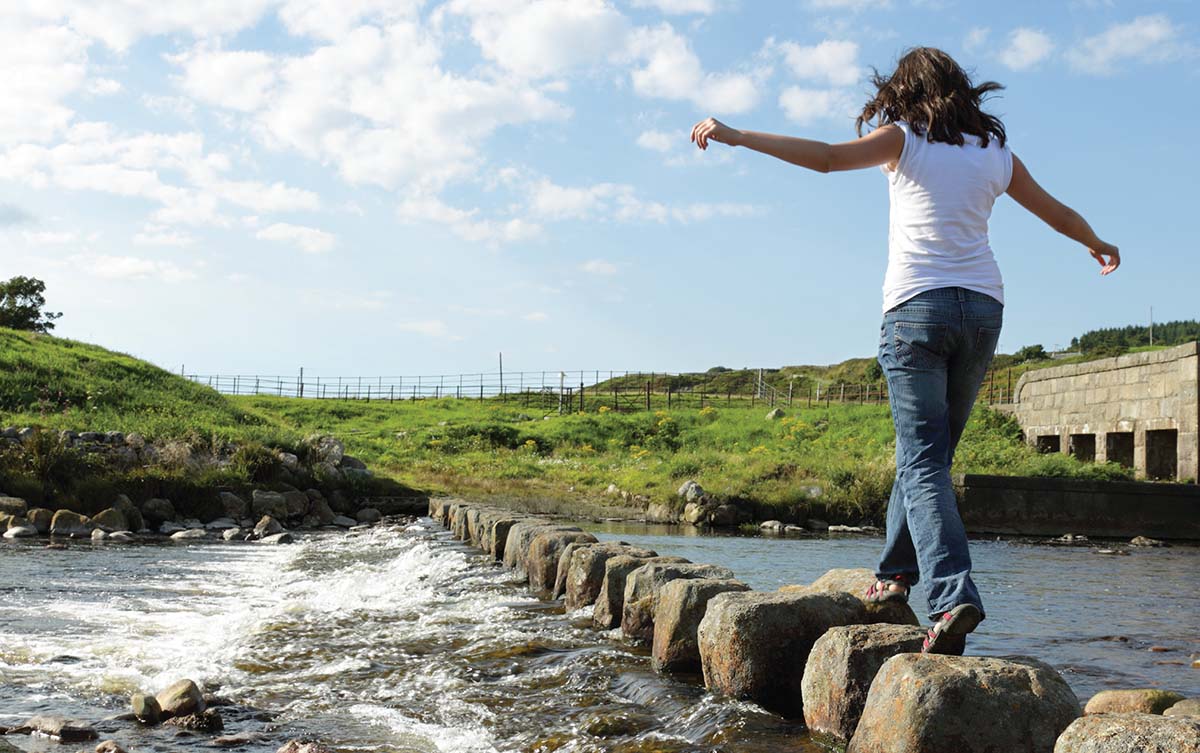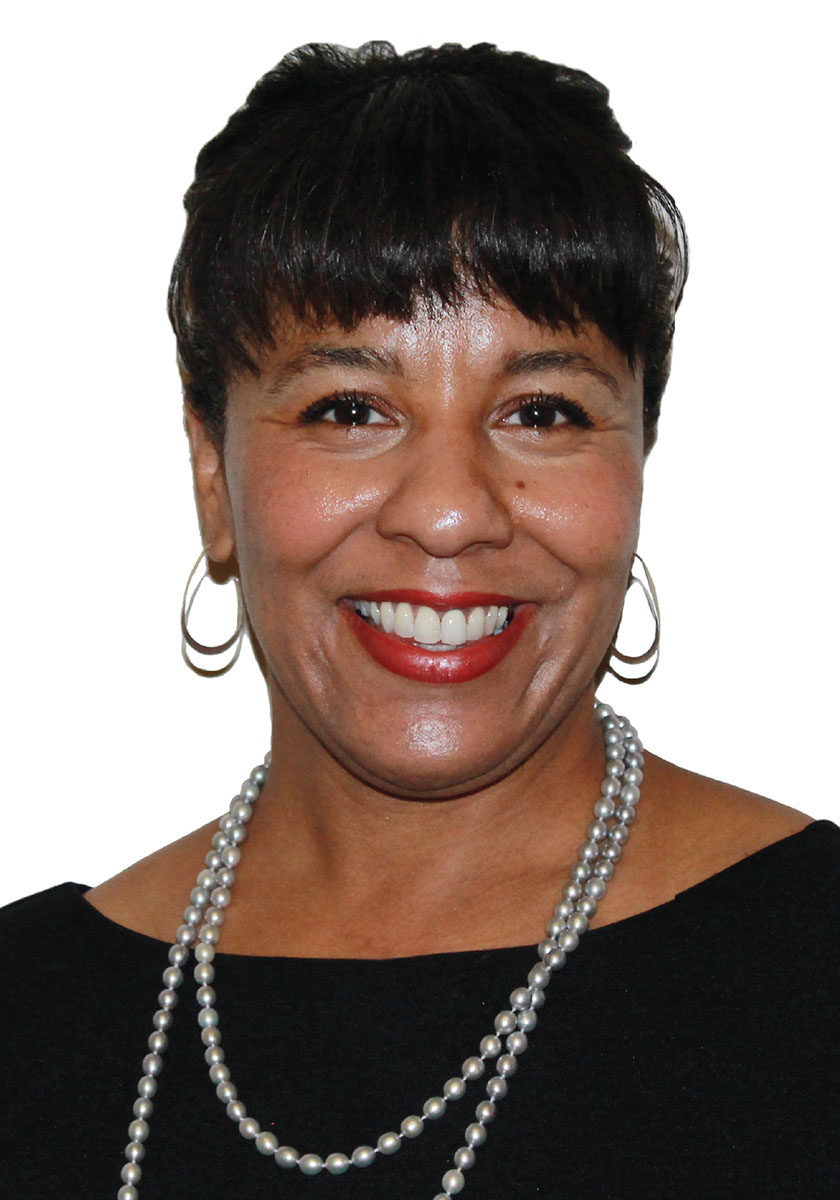
Angela Merkel is one of the few people to have migrated to East Germany from West Germany – a path rarely trodden in the rush of humanity trying to go the other way. This move was prompted by her father’s religion: born Catholic, he converted to Lutheranism and received a pastorate at a church in Quitzow, which was then in East Germany.
Thus began the rise of a lady who is generally recognised as the most powerful woman in the world and the de facto leader of Europe. Merkel is a riddle wrapped in a conundrum, having been brought up in the East and formerly a member of the Free German Youth (FDJ), a youth movement that was sponsored by the ruling Socialist Unity Party. Later, at the Academy of Sciences, she became a member of the FDJ district board and Secretary for ‘Agitprop’, dealing with Agitation and Propaganda. Merkel claimed she was Secretary for Culture, and when Merkel’s ex-boss in the department contradicted her, she insisted that “according to my memory, l was Secretary for Culture. But what do l know? I believe l won’t know anything when l am 80.” The trouble was, she was not 80, and one might therefore reasonably expect her to recall her title. This is the woman who went on to rule over the largest exercise is democracy
in a lifetime – the European Union: Hence the riddle.
Merkel’s rise was predicted at a very young age. At school, she learned to speak Russian fluently and was awarded prizes for her proficiency in Russian and mathematics. At the University of Leipzig she studied physics from 1973 to 1978, earning a doctorate as a physical chemist for her thesis on quantum chemistry, after which she worked as a researcher and published several papers.
Merkel entered politics in the wake of the Revolutions of 1989, briefly serv-ing as the Deputy Spokesperson for the first democratically elected East Ger-man Government in 1990. Following the German reunification of that year, she was elected to the Bundestag for Stralsund-Nordvorpommern-Rügen, a seat she has held ever since.
She was later appointed as the Federal Minister for Women and Youth in 1991 under Chancellor Helmut Kohl, and became the Federal Minister for the Environment, Nature Conservation, and Nuclear Safety in 1994, serving until 1998. After the CDU/CSUFDP coalition was defeated in 1998, she was elected Secretary-General of the CDU before being elected the party’s leader in 2000 in the aftermath of the CDU donations scandal, which toppled party Chairman Helmut Kohl and his successor Wolfgang Schäuble. As one of Kohl’s protégées and his youngest Cabinet Minister, she was frequently referred to by Kohl as ‘meine Mädchen’ or ‘my girl’.
Following the 2005 federal election, she was appointed Germany’s first female Chancellor at the head of a grand coalition consisting of her own CDU party, its Bavarian sister party, the Christian Social Union (CSU), and the Social Democratic Party of Germany (SPD). In the 2009 federal election, the CDU obtained the largest share of the vote, and Merkel was able to form a coalition government with the support of the CSU and the Free Democratic Party (FDP).
At the 2013 federal election, Merkel led the CDU/CSU to a landslide victory with 41.5% of the vote and formed a second grand coalition with the SPD after the FDP lost all of its representation in the Bundestag.
In 2007, Merkel was President of the European Council and chaired the G8, the second woman (after Margaret Thatcher) to do so. She played a central role in the negotiation of the Treaty of Lisbon and the Berlin Declaration. One of her priorities was also to strengthen transatlantic economic relations by signing the agreement for the Transatlantic Economic Council
on April 30th, 2007. Merkel is seen as playing a crucial role in managing the financial crisis at the European and international levels, and has been referred to as “the decider.”
Merkel advocated a strong trans-atlantic partnership and German-American friendship. In the spring of 2003, defying strong public opposition, Merkel came out in favour of the U.S. invasion of Iraq, describing it as “unavoidable” and accusing Chancellor Gerhard Schröder of anti-Americanism. She criticised the government’s support for the accession of Turkey to the European Union and favoured a “privileged partnership” instead. In doing so, she reflected public opinion that grew more hostile toward Turkish membership of the European Union. Full Turkish membership would place the entire union in the hands of a country with 74 million Muslims, who would carry an enormous voting bloc, and this has long been deemed unacceptable.
In October 2010, Merkel told a meeting of younger members of her CDU party at Potsdam that attempts to build a multicultural society in Germany had “utterly failed”, stating: “The concept that we are now living side by side and are happy about it does not work and we feel attached to the Christian concept of mankind; that is what defines us. Anyone who doesn’t accept that is in the wrong place here.”
She continued to say that immigrants should integrate and adopt Germany’s culture and values. This has added to a growing debate within Germany on the levels of immigration, its effect on Germany and the degree to which Muslim immigrants have integrated into German society.
On September 25th, 2007, Merkel met the 14th Dalai Lama for private and informal talks in the Chancellery in Berlin amid protests from China. China afterwards cancelled separate talks with German officials, including talks with Justice Minister Brigitte Zypries. Unlike many world leaders, she did not buckle and stuck to her guns.
One of Merkel’s priorities was strengthening transatlantic economic relations: she signed the agreement for the Transatlantic Economic Council on April 30th, 2007 at the White House. The Council, co-chaired by an EU and a US official, aims at removing barriers to trade in a further integrated transatlantic free-trade area. This project has been described as ultra-liberal by the French left-wing politician Jean-Luc Mélenchon, who fears a transfer of sovereignty from citizens to multinationals and an alignment of the European Union on American foreign policy and institutions.
Der Spiegel reported that tensions between Chancellor Merkel and US President Barack Obama eased during a meeting between the two leaders in June 2009. Commenting on a White House press conference held after the meeting, Der Spiegel stated, “Of course the rather more reserved Chancellor couldn’t really keep up with the Obama charm offensive, but to reciprocate for Obama’s ‘good natured’ diplomacy, she gave it a go by mentioning the experiences
of Obama’s sister in Heidelberg, making it clear that she had read his autobiography.”
Relations between the two soured dramatically when the leaks from whistleblower, Edward Snowdon revealed that America’s National Security Agency had been spying on Germany, and on Merkel personally, for decades. In an angry exchange with Barack Obama, Angela Merkel compared the snooping practices of the US with those of the Stasi, the ubiquitous and all-powerful secret police of the Communist dictatorship in East Germany, where she grew up. The German Chancellor also told the US President that the NSA cannot be trusted because of the volume of material it had allowed to leak. Livid after learning that the Americans were listening in on her personal mobile phone, Merkel furiously confronted Obama with the accusation: “This is like the Stasi.” And she would know! The newspaper also reported that Merkel was particularly angry because, based on the disclosures, “the NSA clearly couldn’t be trusted with private information, because they let Snowden clean them out.”
Rather than resorting to a European response, Merkel pursued a bilateral pact with the Americans aimed at curbing NSA activities and insisting on a “no-spying pact” between allies. Obama refused but agreed to desist from monitoring Merkel personally. It is alleged that she went into secret meetings with selected heads of European countries to devise technology
that would defend against US snooping aggression. This is phenomenally difficult as the US is the leading player in the sector and it marks the first time that Germany recognised US aggression since 1944.
Russia’s stance has always comprised a mixture of fascination and trepidation for Merkel. Not only fluent in Russian, she also understands what makes them tick. After all, if Europe is to stand up in its own right on the international stage and rebuff America’s crass attempts to spy-then placate, Russia would be the obvious partner. Alas, this plan was doomed after the Ukraine invasion and Putin’s ostracisation from Planet Earth. Nevertheless, Merkel is very good at the long game and is now seen as the go-between for isolated Russia and the West.
Meeting Putin for talks at the Kremlin, she stressed the importance of finding a diplomatic solution. “It’s necessary for us to work, to cooperate, including over complicated situations – the way the situation is now – and try to find diplomatic solutions,” she said at the start of the talks.
Political analyst Lilia Shevtsova said the meeting between the two leaders was highly symbolic. “They are hardly happy to see each other,” the prominent pro-Western analyst wrote on Facebook. “He is trying to retain his seat at the table by turning to the shadows of the past and other people’s glory. But she has not accepted his rules of the game.”
Many are concerned that Putin used last year’s VE Day festivities to justify Russia’s meddling in Ukraine and promote his nationalism-tinged agenda.
He has shrugged off Merkel’s gesture and instead played up ties with Asia, Latin America and Africa. “Everyone we wanted to see was here,” he said in televised remarks. He then immediately hosted 91-year-old Zimbabwean Pres-ident Robert Mugabe, who praised him for standing up to Washington and noted that their two countries had been slapped with sanctions. “That is the reason why we should remain together,” Mugabe said. When the Zimbabwean Butcher is the only person who will talk to you, you know there is a problem.
Putin is rumoured to be a raging misogynist, and having to deal with Merkel must rankle. This was demon-strated for the entire world to see in 2007.
The incident of Vladimir Putin, Angela Merkel and the dog is a famous one. It was 2007 and Merkel was visiting Putin at his presidential residence in Sochi to discuss energy trade. Putin, surely aware of Merkel’s well-known fear of dogs, waited until the press gathered in the room, then called for his black Labrador to be sent in. The Russian president watched in unconcealed glee as the dog sniffed at Merkel, who sat frozen in fear.
Later, in discussing the incident with a group of reporters, Merkel attempted an explanation of Putin’s behaviour. Her quote, reported in George Packer’s December 2014 profile of Merkel in the New Yorker, is one of the most pithily succinct insights into Putin and the psychology of his 14-year reign that I have read: “I understand why he has to do this – to prove he’s a man,” Merkel said. “He’s afraid of his own weakness. Russia has nothing, no successful politics or economy. All they have is this.”
Merkel is not the first person to suggest that Putin’s machismo – everything from his harassment of fellow heads of state to his shirtless photos and his invasion of Ukraine
are shows of strength meant to mask feelings of weakness. But she has put
her finger on this phenomenon with remarkable bluntness. Her female instincts kick in and are right on the money.
She has an especially close relationship with Putin (this incident notwithstanding) and unusual insight into how Putin’s Russia works. Among Western leaders, her relationship with Putin is almost certainly the closest and most important. Yet all this closeness has apparently made her respect Putin less, not more. It is also dangerous, tempting the nuclear-armed and legit-imately formidable Russian military into a war in Europe. But at least Merkel, who is in many ways the pivot point between Russia and the West, under-stands what she is up against.
And here is a point that cannot go unrecognised. Love her or hate her, Margaret Thatcher was a force to be reckoned with and stood up to hectoring bullies and male dominated military aggression. If Merkel was to be the confidante of both Obama and Putin, there is an obvious gender connection here. Do women make better politicians than men?
Both ladies were female scientists who became the first women to lead a male dominated Conservative Party, and the first women to lead their countries. But their leadership styles could not be more different. Where Thatcher ruled with an iron fist, Merkel prefers discussion, deliberation and consensus. Her nickname, ‘Mutti’ (‘mummy’), is a far cry from the ‘Iron Lady’. Her leadership style – prudent, democratic, and modest – has proven to be hugely successful. She exemplifies a different type of leadership, one that many other women, regardless of political affiliation, can relate to. A survey in August 2013 showed that a third of German women now consider her a role model.
Yet there is a significant similarity: neither Thatcher nor Merkel consider themselves feminists. And although her gender undoubtedly affected her career, Merkel very rarely talks about it. Her party has by far the smallest percentage of female members of parliament, even if their leadership and cabinet appear otherwise; she has always worked in male dominated environments. Her path to power has been more a marathon than a sprint, and one during which her ability was frequently doubted. Her political record on women’s issues is lacking, and many feel she has done too little to promote gender equality. Unresolved issues include equal pay, women’s career prospects and women on boards. Particularly troubling is that Germany has one of the highest gender pay gaps in Europe. This failure was recently criticised by the Social Democrats (SPD). Unlike Merkel, they call for the implementation of a minimum wage as a step towards correcting gender pay inequality. They also support women in higher positions by backing a 40% quota for women on boards, which Merkel delayed until 2020. But their criticisms were blunted by questions about the number of women in the SPD leadership, which does not showcase the same gender diversity as the top ranks of the CDU.
This brings us to the deeper problem: issues of gender remain largely unrecognised and unaddressed in German political discourse. Neither party was willing to address issues in gendered terms in their recent national campaigns. The failure of German politics to address women’s issues is further highlighted by the worrying fact that 46% of women don’t look to the government for help on women’s issues. Merkel managed to secure 44% of the women’s vote for her party, compared to 39% of German men. This goes against global trends, where women have begun to lean more towards the left of the political spectrum. But despite her success in the election, only 28% are happy with Merkel’s ‘Frauenpolitik’ and more than half of German women believe that a lot more needs to be done before gender equality is achieved.
Dealing with prejudice throughout her career, Merkel has been reluctant to emphasise her femininity. Years ago, as leader of the opposition during Gerhardt Schroeder’s chancellorship, ‘Die Merkel’ made a conscious effort to run a gender-neutral campaign and would not have dared to tackle women’s issues for fear of being labelled and restricted to those issues – a common fear among female politicians. But unlike male leaders in the past, she has accidentally been bestowed with the ‘burden of representation’, which makes her failure to act on behalf of women more visible. In the last year, she has become bolder and there are a few examples of her taking action: for example, when she recently invited 75 leading professional women and around 30 female students to a conference on women in German society.
Her dress style makes a firm statement that she will not be judged by her gender. A vast array of trouser suits ensures that little comment, whether bitchy or complimentary, can be levied. Needless to say, the perennial Queen of the May, Karl Lagerfeld, couldn’t help himself when he whined: “Bad proportions, too long pants, too tight jackets. She has scarcely any time to come to Paris, and when she is in Paris to visit President Hollande she is very busy.” Not going to Paris to shop is his benchmark for judging women, which about says it all!
But with fashion not coming to her as naturally as economics, Merkel has got her formula and she’s sticking with it. Her signature look comprises three-button blazers, often from German designer Bettina Schoenbach, in a huge range of colours. Dutch graphic designer Noortje van Eekelen even created a personal Pantone chart that runs to an impressive 90 shades. That’s one for every situation Europe’s most powerful woman might find herself in.
In Angela Merkel, the world wit-nessed the unmistakable return of Germany as the dominant power of Europe. After decades of deliberately constraining its power, Germany has snapped its restraints. Instead of aligning itself to the collective interest of a unified Europe, Germany has asserted its own interests. At the extreme, there have been hysterical comparisons with Germany’s Nazi past. But even moderate and responsible Germans have marked this episode as a turning point in the history of their country: “During the long night of negotiations over Greece on July 12th-13th, something fundamen-tal to the European Union cracked,” wrote Germany’s former Foreign Affairs Minister, Joschka Fischer. What changed, he said, was “the Germany that Europ-eans have known since the end of World War Two”.
The German Chancellor put Germany’s demands ahead of those of its European partners. She overruled her core partner, France, in the co-management of Europe and the majority of EU governments. Formally, Greece has been negotiating its national solvency with the socalled “troika” of institutions – the EU, the European Central Bank and the IMF. But, in reality, the nub of the negotiation came down to Greece pleading with Germany, the weakest debtor pleading with the strongest creditor. And submitting. Merkel laid down tough demands for Greece’s government to raise her taxes, cut her spending and repay her debts. If she agreed, she would receive enough new loans to allow her to stay solvent, to keep her banks to open, to stay in the Eurozone.
It was an exercise in power politics. Greece was the immediate object of the exercise, but Angela Merkel was giving a lesson in fiscal discipline to all the other debtor nations of Europe – includ-ing France. Germany’s first post-war Chancellor, Konrad Adenauer, famously declared: “German problems can only be solved under a European roof.”
This was the concept guiding the creation of the European Union – Germany took the initiative to extend the roof to pool its power with that of its neighbours in a revolutionary experi-ment in surrendering sovereignty. But Europe’s debt crisis has revealed a change. Germany remains under a shared roof, but it is a German roof that extends over Europe, not the other way around.
This newfound German assertiveness has been called the “return of the Germany problem” and “the return of the ugly German”. Most dramatically, German newspaper Süddeutsche carried a piece about Merkel, under the headline: “Europe’s new enemy”. There has been talk of a “fourth Reich” or fourth empire.
As Heather Conley of the Centre for Strategic and International Studies puts it, the crisis over Greece is answering the post-World War Two question: “Will Europe develop in France’s image, financially underwritten by the Germans? Or will Europe follow German rules, financed and policed by Germany?” The answer now emerging is: “Europe will be shaped by Germany (with occasional French intervention).”
The Eurozone, and the EU itself, would have splintered years ago if not for Merkel’s determination and Germany’s strength. Remember all the headlines and confident prognos-tications that the EU couldn’t stand, that it must shatter under the force of the crisis? This was the orthodoxy. There was no inevitability that the EU would endure.
Merkel’s Germany has held it together.
Vladimir Putin’s angry Russian bear is real, and it’s increasingly aggressive. Who will stand up to it? Among the major European powers, it has so far been Merkel’s Germany that has shown the firmest resolve to resist Russia. While the US under Obama dithered over what she is prepared to defend and what she will resist, Merkel’s Germany has been putting the spine into Europe.
Economically and strategically, German power is revealing itself to be the solid core of the Western world. And that’s not all bad news.
If we can forgive the barbaric transgressions of their forefathers, Germany could and should be our closest ally. That so-called ‘special relationship’ we have with America is so much tosh and nonsense. It’s all one-way, and to be frank, they couldn’t give a hoot for our thoughts.
I have a vague, passing interest in cars and therein lies an excellent example. German-built automobiles stand absolutely head and shoulders above the motoring crowd and have done for the past 30 years. They do not produce the finest machinery the world has ever seen with slave labour or smoke and mirrors. They work bloody hard, have the finest technical expertise, derived from an exceptional education and iron discipline, and earn a damn good crust from it.
If you can suspend your bemusement at the following example, l think it might emphasise the point. In 1939, this small country comprised 67 million citizens. They followed a deranged maniac, admittedly, but in their devotion and discipline they took to conflict and totally dominated the planet of 2.3 billion people. They easily con-quered every country in Europe, with one hand tied behind their back, and went on to take over the world. Only the horrific Russian winter and America finally waking up stalled their progress. This was a remarkable feat
of efficiency.
The difference here is about 70 years and a woman. Mrs Merkel was unlikely to go to war or invade Poland, no matter what Basil Fawlty thought. Here was the the opportunity for the UK to partner with a country to which we have been inextricably bound throughout history, devoid of aggression and masters of their universe.
Angela Merkel led a people of determination and hard graft, and as we adopted our own royal family from their fair shores, perhaps we should have realised that allowing Germany to partner with the economic minnow that is France is lunacy. They will only ever be a subservient infant, and perhaps we should have stepped forth and occupied our rightful place by their side. Brexit of course put paid to that.
It is, perhaps, a measure of just how powerful she has become that Angela Merkel now appears to be influencing youth slang. The compilers of Germany’s most popular dictionary say that the verb “merkeln” is on track to become the most popular “youth word” of the year. Media strategists surrounding the Chancellor who may have fleetingly thought they could seize on the opportunity to encourage more young people to support the German Chancellor will, however, have been quickly disappointed.
The word is none-too flattering, meaning being indecisive, or failing to have an opinion on something – behaviour that Germans often attribute to Merkel.
And this is an issue that dogs most highly competent world leaders. The more they play on the international stage, the more support they lose at home. She has had tough decisions to make and they will never please everyone, but there is one inescapable truth: Frau Angela Dorothea Merkel has taken Germany from a country that was ashamed of its past, content to live in the shadows of the world stage to being one of the biggest players on the planet, the leading state in Europe, one of the wealthiest and most productive countries around and the psychological counsellor of Messrs. Putin and Obama.
It might take a while, but Merkel will one day be recognised as one of the most influential women the world has ever seen.






